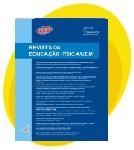<b>Practice schedule and task complexity in the adaptive process of motor learning</b> - DOI: 10.4025/reveducfis.v20i3.6881
Keywords:
Practice schedule. Task complexity. Adaptive process of motor learning.
Abstract
The objective of this work was to investigate the effects of practice schedule in the adaptive process of motor learning in reason of task complexity. The participants were one hundred and sixty children of both gender and the task was of coincident timing. In the experiment 1 the task consisted of touching four response keys sequentially in conjunction with a visual stimulus (simple task), and, the experiment 2, the task evolved six touches (complex task). The experiments involved constant, random, constant-random and random-constant practice groups, and the stabilization and adaptation phases. Dependent variables were absolute, variable and constant errors. The results show that task complexity affected the effects of practice schedule in the adaptive process of motor learning. It was verified that for learning of simple task the adaptation occurred with similar performance for all groups, while the complex task showed worse performance for constant group.Downloads
Download data is not yet available.
Metrics
Metrics Loading ...
Published
2009-10-05
How to Cite
1.
Silva JA de O, Araújo UO, Tani G, Corrêa UC. <b>Practice schedule and task complexity in the adaptive process of motor learning</b> - DOI: 10.4025/reveducfis.v20i3.6881. JPhysEduc (Maringá) [Internet]. 2009Oct.5 [cited 2026Jan.12];20(3):313-2. Available from: https://periodicos.uem.br/ojs/index.php/RevEducFis/article/view/6881
Issue
Section
Original Articles
• Authors retain the copyright and full publishing rights without restrictions.

This work is licensed under a Creative Commons Attribution 4.0 International License.









_1502.jpg)











